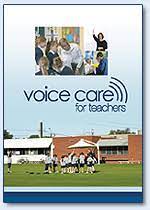Voice care is crucial for teachers, as their profession demands extensive use of their vocal apparatus. Teachers often experience vocal strain and various voice problems, which can lead to long-term damage if not addressed properly. The voice is not just an instrument for communication; it is a significant tool for teachers to engage, instruct, and manage their classes.
Understanding the Basics of Vocal Health:
The human voice is produced by the vibration of the vocal cords located in the larynx. Several factors contribute to vocal health, including hydration, diet, rest, and proper speaking techniques.
Hydration:
One of the most important aspects of voice care is maintaining hydration. Vocal cords need lubrication to function optimally. Teachers should drink plenty of water throughout the day to keep the throat moist and avoid irritants like caffeine and alcohol that can cause dehydration.
Diet and Lifestyle:
Certain foods can affect voice quality. Spicy and acidic foods can lead to acid reflux that may damage the throat and vocal cords over time. Additionally, smoking can have severe repercussions on vocal health, leading to chronic laryngitis or even cancer.
Vocal Rest:
Just like any other muscle in the body, the vocal cords need rest. Teachers should take breaks from speaking when possible and be mindful of their vocal use outside of classroom hours.
Proper Speaking Techniques:
Many teachers may not be aware that there are techniques to protect their voice from strain:
Speak from the diaphragm rather than from the throat; this produces a stronger voice with less strain.
Avoid yelling by using non-verbal signals or amplification devices in larger rooms or noisy environments.
Maintain good posture as it allows for proper breathing which is essential for healthy voice production.
Warm-up Exercises:
Simple warm-up exercises can prepare the voice for a day of teaching. Humming gently up and down in pitch helps wake up the vocal cords.
Voice Therapy:
For teachers experiencing persistent problems with their voice, consulting a speech-language pathologist might be beneficial. They specialize in treating voice disorders and can offer tailored exercises and strategies for voice improvement.
Creating a conducive environment in classrooms can also help reduce the need for a raised voice. For instance, setting up classroom rules to manage noise levels or arranging seating to minimize distance between teacher and students can be effective.
Conclusion:
Teachers must prioritize their vocal health as they would any other professional tool. By staying hydrated, eating right, resting their voices, practicing good speaking techniques, doing warm-up exercises, possibly seeking therapy when needed, and creating optimal classroom environments, they can preserve their voices for many years of teaching. Voice care is an important aspect of self-care for educators and should be recognized as such within educational systems worldwide.





